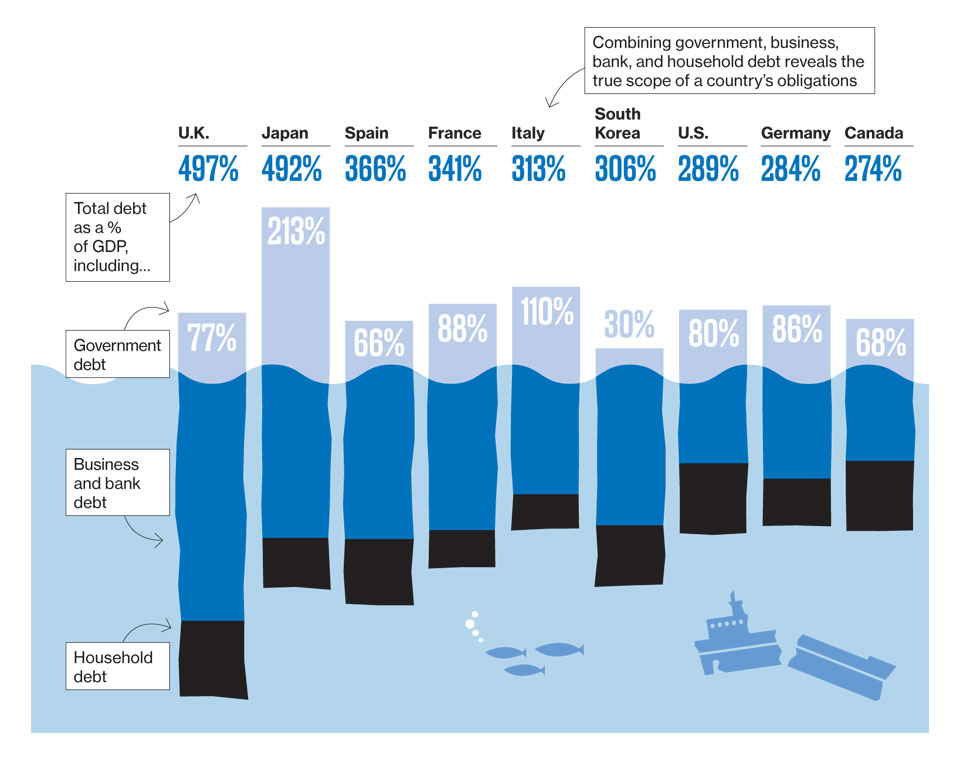08:44 – Edward P. Lazear in the WSJ points out something that should be obvious to anyone. The EU problem is too much government. Unfortunately, the only “solutions” they’re considering involve more of what’s caused the problem in the first place. It’s apparently impossible for politicians even to consider that government is the problem, not the solution. And the US has the same problem, albeit not quite as advanced.
Instead, EU politicians blame the market, the ratings agencies, and indeed anything else they can think of other than themselves. They’re now apparently seriously considering implementing a horrible idea that’s been simmering on the back burner for a couple of years now. A so-called “Tobin Tax” on financial transactions. Basically, the idea is that by making it more expensive for traders to trade they’ll reduce volatility in the markets.
Their problem is that, as Sweden found out in spades a few years ago, a Tobin Tax must be implemented globally. When Sweden implemented a Tobin Tax, the markets simply abandoned Sweden and moved their trading elsewhere. The vast majority of market activity in the EU already occurs in London, so implementing a Tobin Tax in the eurozone would simply cause essentially all of the little remaining market activity in the EU to relocate to London and New York, where it would not be taxed. The EU’s solution to this is to attempt to force the Tobin Tax on the UK (which has a veto over such things) and to lobby the US to implement such a tax. It’s not going to work, any more than any of the EU’s other “solutions” have worked. We’re really well into the endgame now.
10:51 – Hmmm. I just finished writing up a lab session on Mendelian inheritance, and realized that I might have a serious problem. Back when we were in school, everyone did the PTC tasting thing, but it was typically done with just the students in a classroom. This lab session is a bit different…
“Testing unrelated individuals provides some useful data, but ideally you want to test as many related individuals as possible so that you can follow inheritance of the PTC tasting and non-tasting alleles through generations of families. Testing both parents and their children is good; testing parents, children, and all four grandparents is better still. Best of all is testing the full extended family, with aunts and uncles and cousins.”
Most of my readers will immediately spot a very serious potential problem there, so I added the following warning:
Any human genetic testing, including this lab session, potentially has serious ethical implications. Many families have at least one “skeleton in the closet” that they’d prefer to keep hidden from the world at large. You are obligated—morally, ethically, and possibly legally—to maintain the absolute privacy of your test subjects by refusing to disclose the data you obtain to anyone else, including the test subjects themselves.
For example, in one of your family groups of test subjects you might find that both parents are non-tasters, as are all of their children except the eldest. You might conclude that that child was adopted or had a different father. Disclosing that conclusion TO ANYONE is a serious ethical violation, and may have direct and indirect consequences you cannot imagine. If you discover such an anomaly, KEEP IT TO YOURSELF.
Also consider this: you are not a geneticist, so you may be wrong.
12:02 – Jerry Coyne comments on Science publishing a new phylogeny of the mammals.

